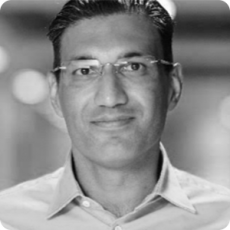Thanks to the evolution of medicine and the new technologies available nowadays, the development of a COVID-19 vaccine was achieved more quickly than ever before. However, with so many options to choose from, public confidence in the safety and efficacy of a coronavirus vaccine depends heavily on the political context in which the doses are approved and distributed. We asked the opinions of several global health workers regarding the rising politicization of COVID-19 vaccines. Check out their insights below.
What are some concrete cases of the politicization of COVID-19 vaccines?

“As in any major worldwide phenomenon, those that play a role in the politicization of COVID-19 vaccines are the biggest economic powers. The United States, as a major player, has seen a change in the vaccination rollout by changing the administration. With the increase of the vaccinated population, we have seen how Europe is welcoming vaccinated tourists from the United States but not from other countries which also have relevant vaccination percentages. In another aspect in Asia, the tension between China and South Korea has led to a delay in access to vaccinations for the peninsular country.”

“The speed at which the scientific community came up with the COVID-19 vaccine and the extent of global cooperation in this effort has been truly remarkable. Unfortunately, since then, politics around vaccines have again come to the forefront, undermining the possibility of an equitable global health approach. Vaccine nationalism, without due regard to the intensity and spread of the contagion, will prolong the pandemic and constitute a moral failure. No vaccine can be expected to produce complete or lasting immunity in all who take it so millions will refuse to get vaccinated. And there is the brutal fact that there are nearly eight billion men, women, and children on the planet. Manufacturing eight billion doses (or multiples of that if more than one dose is needed) of one or more vaccines and distributing them around the globe could require years, not months. These are all matters of science, manufacturing, and logistics. They are sure to be complicated. But the politics will be at least as challenging.”
What are the consequences of the rising politicization of COVID-19 vaccines?

“The main consequence of the politicization of COVID-19 is the unequal distribution and access to the vaccine with the subsequent delay to the vaccination process. In some cases, the political narrative has become more relevant than proper statistics and scientific evidence. The fear of political repercussions has on many occasions led to misunderstanding and confusion among the population who are caught between the political views and the complicated medical information. More complex impact has been shown in low-income countries where, in the absence of a robust medical system and fully effective preventive practices, vaccination is the key to success.”

“At the international level, the questions are even more complex. We need to make sure that production can be scaled rapidly, that rules are in place for availability and that sufficient funds are pledged to cover poorer countries. GAVI, the Vaccine Alliance, the World Health Organization, several governments, and the Bill & Melinda Gates Foundation have formed the COVID-19 Vaccine Global Access (COVAX) Facility. Its creators propose that any effective vaccine that emerges be treated as a global public good, to be distributed equally worldwide, regardless of where it was invented or of a country’s ability to pay. In addition, the WHO has put forward a global allocation framework that prioritizes the most vulnerable populations and healthcare workers. But such approaches may be unrealistic. It is not just that the COVAX effort lacks adequate funding but also the participation of the United States and China and any apparent authority. Moreover, all governments are sure to come under enormous pressure to take care of their citizens first. As a result, vaccine nationalism is almost certain to win out over vaccine multilateralism.”
Check out more than 600 job opportunities in the health sector here.

